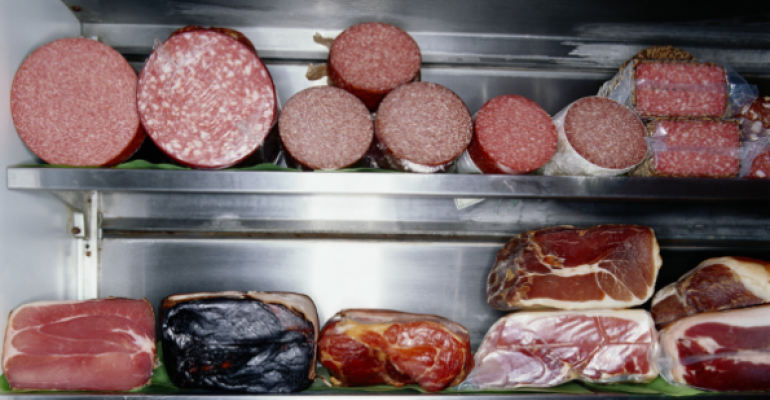 This post is part of the Food Writer’s Diary blog.
This post is part of the Food Writer’s Diary blog.
Oh no, processed meat causes cancer!
That’s not news, actually. Evidence has been mounting for years that, as the World Heath Organization’s International Agency for Research on Cancer announced yesterday, that processed meats cause cancer. There’s also evidence (weaker evidence) that red meat might cause cancer, too.
Some not particularly responsible media organizations have jumped on the fact that the IARC placed processed meat — which is any meat that's preserved somehow, through smoking, fermenting, salting, treating with nitrates, what have you — in Group 1, which is the same category as cigarettes. But as Cancer Research UK points out, the IARC classifies these things based on how confident they are that something's carcinogenic, not by how carcinogenic it is. So after reviewing many studies about what people eat and whether they get colorectal cancer or not, they’re confident that processed meat can cause colorectal cancer just like cigarettes can cause lung cancer. But, to borrow Cancer Research UK's analogy, that’s like putting banana peels and cars in the same category when it comes to causing accidents: Both can definitely cause accidents. The likelihood or severity of those accidents isn’t being measured, just IARC's confidence in the fact that they can cause accidents.
The IARC put red meat, which includes beef, pork and lamb as well as horse and goat, in Group 2A, which is to say it probably causes cancer, but they don’t really know for sure. Chemistry blog Compound Interest points out that emissions from high temperature frying, steroids, and a career in hairdressing also are in Group 2a.
"Exposure to solar radiation,” better known as sunshine, is in Group 1, because it definitely can cause skin cancer.
Does that mean that you should avoid all sunshine? It does not.
Even in its report, the IARC said the increased risk for cancer from eating processed meat wasn’t that great.
But I’m not a scientist, and you’re probably not either, since you’re reading a foodservice trade publication. For our purposes, the real questions are how this news will affect consumer and regulatory behavior.
From what I’ve been reading (and linked to above), regulatory bodies take the IARC's findings seriously, and we could see some moves to further regulate processed meat. In fact, California law already requires that foods that the IARC deems to be carcinogenic be labeled as such. That probably means we’ll be seeing red meat, processed or otherwise, with warning labels in California soon.
Is demand for beef or bacon going to plummet? I reached out to some consumer trend experts to ask what they thought, and their responses were the equivalent of a shrug: They don’t really know.
News about mercury in tuna or overfishing of swordfish can definitely affect people's perception and consumption of food. So can movies telling you that what you eat or drink isn’t cool: Merlot grape growers might never recover from Paul Giamatti’s rant against Merlot wines from the 2004 movie Sideways.
On the other hand, Americans love red meat and preserved meats. They love them! They’re foods that people like to indulge in when they don’t want to worry about their health.
There are exceptions: People on the Paleo diet tout the attributes of beef, especially if it's grass-finished, and animal fat isn’t shunned as much as it once was. Still, it seems to me, based not on science (I love science; I just don’t have any that I can use to justify my argument at the moment) but on how I’ve seen people react over the years, the bacon cheeseburger still sits at the core of the American psyche. Sure, people might eat a bit less of them, not based on this particular finding, but just as part of our evolution as we continue to seek variety in our diets and look after our health.
On the other hand, sometimes being bad makes people feel good. In some ways, bacon and sausage are now more decadent than ever. I wonder if that will add to their appeal.
Contact Bret Thorn at [email protected]
Follow him on Twitter: @foodwriterdiary

